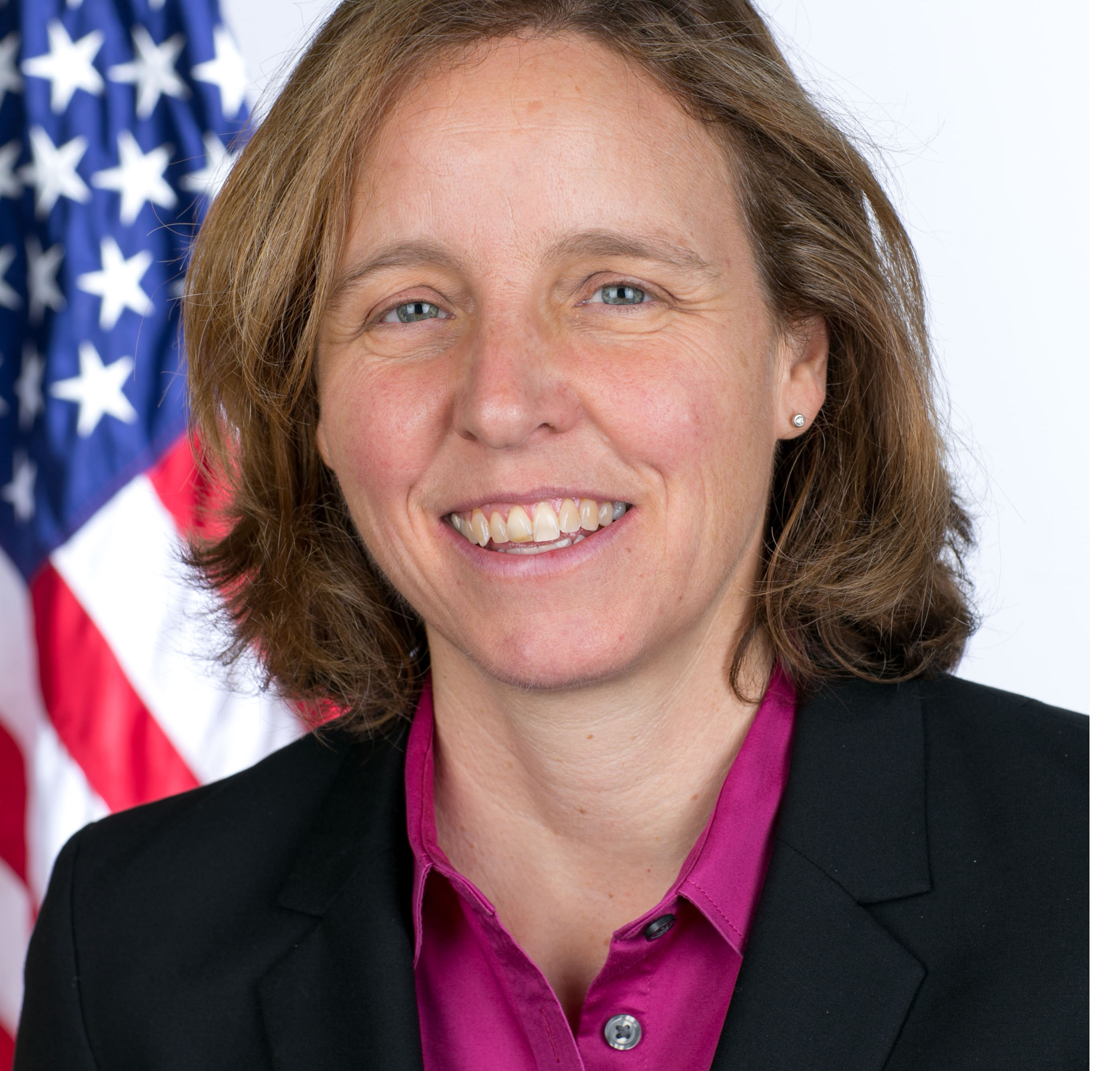Crossover Appeal: Techies Who Made the Jump from Silicon Valley to DC
zimmytws/Shutterstock.com
Until recently, Washington's hold on talented young techies has been tenuous.
Until recently, Washington's hold on talented young techies was tenuous.
Compared to Silicon Valley's dense cluster of technology companies boasting larger salaries, the federal government's proposition for creative young professionals -- lower pay and more administrative hurdles -- had lost out to the private sector's.
Today, the White House is trying to sweeten its deal for techies by recruiting a steady stream of professionals from Silicon Valley stalwarts such as Twitter, Facebook and Google. White House officials have said it's part of an attempt to grow a culture of Silicon Valley-inspired innovation.
In August, President Barack Obama signed an executive order making permanent the Presidential Innovation Fellows program, which embeds private sector professionals in federal agencies for 12-month stints. In the spring, both the departments of Defense and Homeland Security announced plans to set up their own Silicon Valley outposts in an effort to sap tech talent and absorb new ideas.
For the past couple of years, the General Services Administration has been drawing in private sector professionals for its tech fix-it team, 18F, as has the White House U.S. Digital Service and its branches in other federal agencies.
Obama's broader goal, he told Fast Company this summer, is to "recruit a baseline of talent and create a pipeline — on a regular basis, top technology folks are cycling in for a 1- or 2-year stint, making a difference and improving the lives of veterans or improving our education system, or just making sure that social security network is operating efficiently."
He added, "And if we build that culture of service, then, what I do believe will happen is the government as a whole will start thinking about its relationship to citizens differently."
Despite these efforts, top federal technologists don't always stick around in Washington. There's also a steady stream of senior tech talent leaving the government for the private sector, too.
Here’s a look at some notable crossovers.
Megan Smith, chief technology officer of the U.S., former VP of Google[x]

Since taking office in September 2014, Smith may be one of the White House's most visible private sector recruits. She was previously head of Google's shadowy research and development lab, Google X, working on futuristic projects including driverless cars.
At Google, Smith oversaw projects including “SolveForX,” a community network of creative thinkers working on technology projects, and WomenTechmakers, an effort to get more women in technology positions, according to a White House biography.
At the White House, Smith has continued to focus on issues such as technology employment. She and her staff have promoted Obama's TechHire initiative, which aims to train American job seekers to fill well-paying technology jobs. That program includes $100 million for a grant competition searching for new ways to train and employ people with disabilities, child care responsibilities, or limited English, among other potential challenges.
Smith has also hosted a series of technology meetups at the White House, including one featuring Meetup.com and one for LGBT entrepreneurs.
Alexander Macgillivray, White House deputy CTO, former general counsel and head of public policy at Twitter

Macgillivray, appointed alongside Smith, was previously the general counsel and head of public policy at Twitter. At the White House, Macgillivray focuses on issues including "Internet policy, intellectual property policy, and the intersection of big data, technology and privacy," according to a White House announcement.
One of his biggest projects, Macgillivray told Nextgov, is the Police Data Initiative, which encourages 21 U.S. jurisdictions to use data to help solve challenges related to community policing,
"It has been surprising how much is transferable from the private sector," Macgillivray told Nextgov in an emailed statement. "Be friendly. Be open and curious to learning from those around you. Dedicate yourself. All things I hope I did well in the private sector and that I equally feel are the key to doing well here."
Tony Scott, U.S. chief information officer, former head of the global information technology group at VMware

Tony Scott joined the White House in February after executive positions in the private sector. Before VMware, he was the CIO at Microsoft between 2008 and 2013, and before that the CIO at the Walt Disney Company between 2005 and 2008.
Over the summer, Scott kickstarted a 30-day "cybersprint," to shore up federal cyber practices after the Office of Personnel Management hack that exposed the personal information of millions of former, current and potential federal employees and contractors.
“I came from Silicon Valley, which I think many of you know is the land of geeks and cool technology and all the rest of it,” Scott said in one of his first speeches after taking on the role last winter. “I think Washington, D.C., could be best described through my lens as the land of expressives, of extroverts. Nobody here, so far I have found, are shy or introverted about expressing their feelings -- or telling you what’s wrong or how to fix it.”
DJ Patil, White House chief data scientist, former VP of product at RelateIQ

Patil was well known in data science circles thanks to his West Coast experience. But the White House's chief data scientist is actually a federal government alum.
Before his career in the private sector with companies including LinkedIn, Skype, PayPal and eBay, Patil oversaw efforts at the Defense Department to use computational techniques, such as analyzing social networks, to "help anticipate emerging threats to the United States," according to a White House announcement. RelateIQ, a customer relationship management system where Patil previously served as vice president of product, was later acquired by Salesforce.
Patil told Nextgov in an emailed statement one of his initial goals is to ensure the "Obama administration kept the American public updated on our progress on using data to serve the public."
He's also been convening data scientists, technologists, along with clinicians and researchers, to work on understanding mental health challenges and suicide, he told Nextgov. Under Patil's purview, the White House released a series of "trust and privacy principles" for Obama's Precision Medicine Initiative.
David Recordon, director of White House information technology, former engineering director at Facebook

Appointed in March by Obama, Recordon was named to a completely new position responsible for modernizing the White House’s internal technology.
According to the White House announcement, Recordon was previously an engineering director at Facebook where his teams built "companywide internal productivity tools that enabled staff to create, share and find information efficiently," and also focused on "open source, engineering education, and the technology behind the company’s human resources, video conferencing, and physical security efforts."
Obama created the new IT director position as part of a broader reorg of an IT leadership shakeup after the White House's unclassified networks were hacked.
Jason Goldman, first White House chief digital officer and Twitter's former VP of product

Former Twitter executive Goldman joined the White House in April to help the administration "engage directly with people using online platforms."
In addition to Twitter, his resume includes publishing site Medium and Google's blogging platform Blogger, according to Goldman's post on Medium.
"The White House is always looking for ways to listen to the American people, better understand the ways that the government can help, and create dialogue about its policies and initiatives," he wrote in that post.
Josh Miller, White House director of product, former product manager at Facebook

Miller's startup Branch, acquired by Facebook, was designed to help people post conversations online. As the White House's first-ever director of product, Miller plans to "lean on the product ideals that I learned during the last four years building Branch and working at Facebook," he wrote in a post announcing his move to the White House. "Wouldn’t it be great if your government had a conversation with you instead of just talking at you?"
In his post, Miller described a summer internship working for a senator.
“I wasn’t exactly encouraged by how elected officials interacted with their constituents," he said. "When people would reach out with passionate perspectives and genuine calls for help, they were generally met with canned responses. The culprit wasn’t a lack of care, though; it was a lack of tools.”
Mikey Dickerson, head of U.S. Digital Service and former Google engineer

Dickerson, now well-known in civic technology circles for leading the White House digital service team and dressing like a programmer, was once an engineer at Google focusing on site reliability. He was brought as part of a rescue team to help with the botched rollout of Healthcare.gov, and now his group is being replicated in other federal agencies.
Dickerson said he's now focused on empowering the rank-and-file IT workforce in government.
“The government has not moved past this mindset, where the IT people are, like, down in the basement,” Dickerson said late last year at a Yahoo! tech event. “And you have your meetings where you make all the important decisions and then you write them down and send them down to the nerds in the basement and they'll figure it out . . . And we, being the leadership, just move on to the next problem and just assume that they'll figure out this computer thing someday."
Eric Hysen, founding member of U.S. Digital Service, former product manager at Google

Hysen, formerly a software engineer and product manager for Google's civic engagement team, is a founding member of the U.S. Digital Service. He's also founding DHS' digital service team.
In a post announcing his work at DHS, Hysen noted that in college, he once built a website on which students could "share their views on politics and get better informed on key issues," and that his career at Google included "launching tools in over 40 countries to help people vote and engage with their representatives."
And now, a federal techie who’s moving in the opposite direction.
Sonny Hashmi, managing director of global government at Box, former CIO at GSA

At GSA, Hashmi managed the agency's almost $550 million IT investment portfolio; before that, he was the deputy CIO of Washington, according to Box.
In a post announcing Hashmi's arrival, Box CEO and Founder Aaron Levie said Hashmi would be "driving federal strategy" to sell the file sharing service to government agencies.
In a conversation with Nextgov, Hashmi said he was especially proud of changing the agency's workplace, "with open space and shared tools and collaboration."
Hashmi also trumpeted agile development at GSA and other federal agencies. "When I started at GSA, there was no concept of agile development. . . When I left, everything we were doing by default was agile themed," he said.
(Image via zimmytws/Shutterstock.com)
NEXT STORY: NIH-Run IT Contracting Vehicle Slashes Fees





